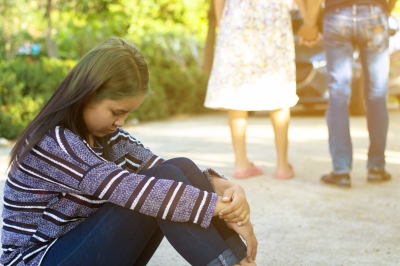Delayed Grief in Adolescents Years Later
Grief hits at different times. Grief in adolescents often happens right away and then reemerges again later in life. It frequently coincides with major milestones. Delayed grief simply means grief that comes well after the tragic event.

An Adolescent Grief Story
It’s now been years since her mom died. She can still remember those final days. There was so much waiting. She felt a sickening sense of inevitability that almost made her impatient for its end. Then when it finally came, it was both horrible and an odd relief. Her mom had just been sick for so long.
She expected the waves of grief that came after. Everyone had told her they would. They promised to check in on her and that she could cry whenever she needed to. She found that both comforting and intrusive.
Now she’s eight years older. She’s close to finishing high school. She has a steady group of friends, a place at a college this fall, and has blossomed into a beautiful and poised young woman even without the guidance of her mom for the day to day. So why she wonders is she suddenly stricken with a depth of delayed grief that feels as fresh as if mom just died?
What Do the Experts Say?
Jazmine, our therapist who specializes in grief and loss in adolescents, notes that people often go through bouts of delayed grief when they hit major milestones in their life. The young woman described above is about to graduate high school. This rite of passage marks the transition from childhood to adulthood. It is an event most every child wants their parents to witness. On top of that, the transition out of childhood feels foreign, exciting, scary, and overwhelming. Teenagers like knowing they have a safe landing place where they can retreat to the comforts of childhood when adulting feels exhausting. This girl is naturally longing for her mother in this situation.
Relationships with Our Loved Ones Continue On
The part that confuses this girl is why she longs for a mother she only knew as a child. What she isn’t thinking about is that her relationship with her mother has continued. Firstly, she has never stopped loving her mom. Secondly, she still talks to her. Thirdly, she has a sense that her mom would be proud or her mom is watching from time to time. This relationship is still part of the core of her being.
Although her dad doesn’t talk about her mom as much as she’d like, she still is learning new things about her mom’s personality every time she’s with her grandparents. All through high school she has created a sense of her mom in her life collated from her own memories, anecdotes others have shared, and a composite of her favorite things about her friends’ moms. So, when explained this way, it’s only natural she is feeling a keen sense of delayed grief as she readies for an enormous change in her life.
Jazmine also tells us this girl is likely to experience grief again when she completes college, when she gets married, when she has her own children, and when she copes with tragedy and strife.
Delayed Grief Years Later
Grief is long. It retreats from a pain so acute that one cannot breathe into a dull ache. It becomes easier to set aside for a more convenient time as there is distance between the loss. However, it becomes something we live with, not something we get over. Hopefully, living with the grief gives us a dignity and wisdom instead of bitterness and anger. While it is a universal human experience, that is not the case for teenagers. This means there are less people who know what to say and how to support a teen going through loss. That is where grief therapy can help.
If your teenager is dealing with acute grief or delayed grief that is reemerging after a long latency, please feel free to call. While we might not necessarily recommend therapy, we are always happy to be a sounding board as you sort through what to do.
Helping teens grow and families improve connection,
Lauren Goodman, MS, MFT



